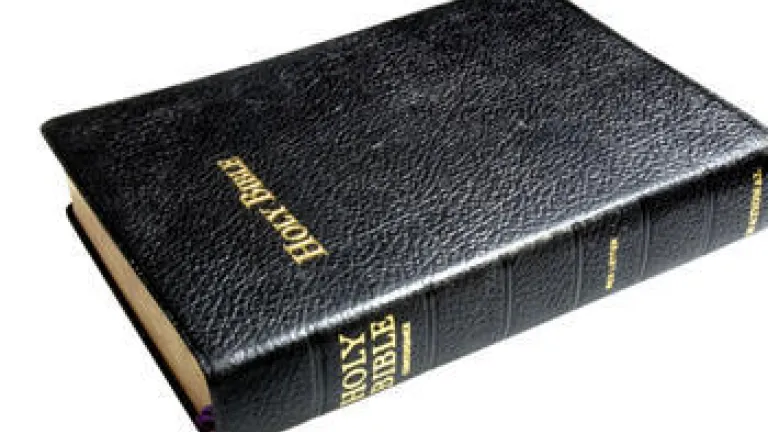Deuteronomy 34
The death of Moses
Moses' Death
As mentioned in the introductory highlights of Deuteronomy, though it was possible for Moses to have written this final chapter himself under God's inspiration, it seems much more likely that God used someone else to bring the book to its completion. An obvious candidate is Moses' successor, Joshua. However, the wording of verse 10 makes it appear that more time had passed than just Joshua. Perhaps someone else wrote the final three verses of the book.
Here we see that Moses dies at 120 years of age, but not because of ill health or the normal physical deterioration associated with aging (verse 7). In this way, God made it clear that He was taking Moses' life, not allowing him to enter the Promised Land, because of Moses' error in striking the rock at Kadesh. Still, this great man of God is given a glimpse of the Promised Land and full assurance that his people would enter it. More importantly, he one day will enter that land and a far greater Promised Land—when He is resurrected from the dead into the Kingdom of God, which will be ruled from Jerusalem (compare Matthew 16:28; Matthew 17:1-9).
Remarkably, God Himself buried Moses' body in a secret place (Deuteronomy 34:5-6). This was apparently to prevent his gravesite from becoming an idolatrous shrine, as it surely would have. In fact, we are told in the book of Jude that Satan and Michael fought over Moses' body (verse 9)—as perhaps Satan wished to make the location of the burial known for just this reason.
Although Joshua became a powerful leader, he did not reach the stature of Moses. "But since then there has not arisen in Israel a prophet like Moses, whom the Lord knew face to face, in all the signs and wonders which the Lord sent him to do..., and by all that mighty power and all the great terror which Moses performed in the sight of the people" (verses 10-12). Indeed, no one like him would follow in the remainder of the Old Testament.
However, Moses foretold that a prophet like himself would appear, whom the people should follow. That Prophet, appearing in the New Testament, was Jesus Christ. As the law came through Moses, grace and truth came through Christ (John 1:17). Jesus Himself attested to the credibility of Moses, when He said, "If you believed Moses, you would believe Me; for he wrote about Me" (John 5:45-47). But as people really have not believed Moses' writings, so they don't really believe Christ's words either.
Finally, then, with the obituary of its author, we come to the conclusion of the first major division of the Old Testament—the five books of the Law, or Torah. We are left hopeful and excited, with the conquest of the Promised Land before us. May all of us have this same hope and excitement as we stand on the brink of entering our Promised Land—the Kingdom of God. Therein, we will join with all the faithful we've read about—such as Abel, Enoch, Noah, Shem, Abraham, Sarah, Isaac, Jacob, Joseph, Moses, Aaron, Miriam, Joshua and Caleb—under Jesus Christ, in reforming this world to make it the kind of place it's supposed to be. What a wonderful time awaits us!




Beyond Today Bible Commentary: Deuteronomy